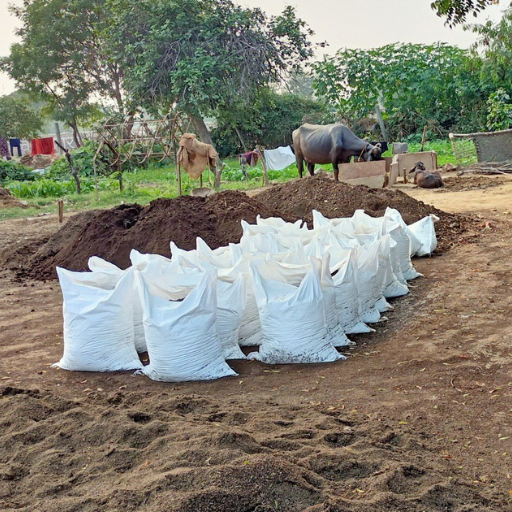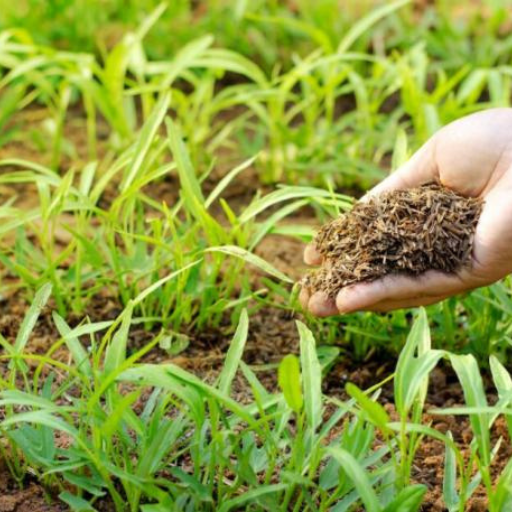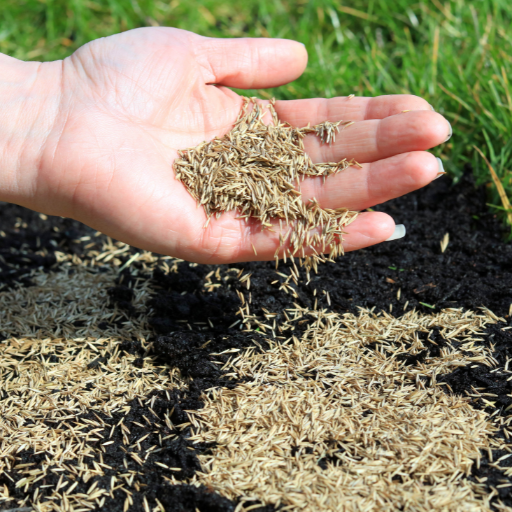In today’s world, the demand for organic gardening and farming practices is steadily increasing as more people become conscious of their health and the environment. One crucial aspect of organic cultivation is the use of natural fertilizers, which not only enrich the soil but also enhance plant growth without the harmful effects of chemical alternatives. However, sourcing organic fertilizers can often be costly, making it essential for budget-conscious gardeners and farmers to find affordable yet effective options. This blog aims to explore some of the best and most economical organic fertilizers available, offering practical insights and tips to help you nourish your plants sustainably without breaking the bank. Whether you’re an experienced gardener or a novice just starting, this guide will provide valuable information to help you make informed decisions for a thriving organic garden.
What is an Organic Fertilizer and How Does it Work?

Understanding Organic Fertilizer
Organic fertilizer is a term that refers to the kind of fertilizers that are made from minerals, decaying plant residues and animal products such as manure. They work by providing the soil with all necessary organic elements. For instance, they increase microbial activities thus enhancing soil structure, making available essential nutrients such as nitrogen (N), phosphorus (P) and potassium (K). Unlike synthetic fertilizers, organic fertilizers release their nutrients gradually over time thereby ensuring that there is no excess supply at any given time which can lead to serious consequences in plants. This type of releasing helps in promoting better growth of roots thus stronger plant growth leading to gardens and farms that are resistant.
The Benefits of Using Natural Fertilizer
There are several advantages related to the use of natural fertilizer on the environment as well as plants.Firstly, natural fertilizers improve soil health because they bring about an increase in its organic matter content and enhance its water retention abilities resulting in improved structure and reduced erosion. Secondly, these types of fertilizers support the existence of beneficial organisms within soil such as microbes which help in breaking down organic materials and releasing nutrient into it for sustainable farming purposes. Thirdly, unlike chemical ones, this kind reduces nutrient overload hence curbing eutrophication which leads to subsequent water pollution thus conserving rivers and surrounding aquatic ecosystems. Lastly, use of synthetic or chemical fertilizers may cause leaf burn due to excessive amounts being applied at once; therefore steady nourishing is promoted without any upsets.
How Organic Fertilizers Improve Soil Health
Organic fertilizers generally contribute towards increased fertility through various ways:
Higher Percentage Of Organic Matter: These substances contain organic substances whose addition to soils improve their structures while increasing their moisture holding capacities among other functions so conducive for better establishment and development of plants’ root systems.
Improved Microbial Activity: This supports significant growth of advantageous microorganisms aiding decomposition processes that create soil nutrients for longevity in agricultural lands.
Slow Nutrient Release: Organic fertilizers have slower nutrient release rates compared to chemically made fertilizers. This characteristic of gradual releasing helps to minimize nutrient runoff and provide stable supply of essential plant elements like nitrogen (N), phosphorous (P) and potassium(K). Most organic fertilizer has average ratios of about:
- Nitrogen (N): 1-5%
- Phosphorus (P): 0.5-3%
- Potassium (K): 0.5-3%
Soil pH Balance: Many organic fertilizers help maintain or slightly improve soil pH levels, ensuring that nutrients remain available for plant uptake. Additionally, most organic materials are close to neutral pH, which can aid with buffering against acidic or alkaline soils.
Diminishing Soil Compaction: These products add organic content hence reduce compactness in soils that therefore improves root percolation as well as air movement within soily structure.
With this knowledge on hand, farmers and gardeners can then decide on how best to improve the health condition of their soils so as to facilitate sustainable crop production.
Types of Organic Fertilizers Available
Seaweeds and Kelps as Fertilizers: What Are the Advantages and Uses?
One of the reasons why people are increasingly adopting seaweed and kelp fertilizers is due to their numerous benefits in gardening and agriculture. These fertilizers contain a lot of micronutrients, amino acids, and plant growth regulators that can greatly increase the health and productivity of plants. These include:
- Enhanced Nutrient Absorption: Seaweed extracts have natural growth hormone-like substances including cytokinins, auxins and gibberellins that enable plants take up nutrients more efficiently while improving root development.
- Survivability to Stress Factors: The special compounds present in seaweeds assist in enhancing resistance against various environmental stress factors like drought, frost and diseases by developing plant’s general fitness.
- Soil Structure Enhancement: The organic matter contained in both kelps’ and seaweeds’ products enhances soil structure leading to beneficial microbial activity, better soil aeration, water retention among others.
These fertilizers usually come in liquid, powder or granular forms, which can be applied as foliar sprays, compost activators or soil amendments. Growers can back sustainable and organic crop production by using kelp or seaweed-based fertilizers for use during their farming practices.
The Use of Manure as Organic Plant Food
Manure is one popular decomposed material used as an organic fertilizer to enrich the soil quality thereby promoting healthier crops. It contains ample amounts of essential nutrients such as nitrogen (N), phosphorous (P) and potassium (K) which help plants grow well balanced levels. Some of the advantages associated with using manure for organic plant food include:
- Increase in Nutrients: Richness in essential minerals makes it useful in supporting vigorous growth of plants through enriching soils with valuable nutritional contents provided gradually throughout the growing season.
- Better Soil Structure: Contributing organic substances from manure is useful in improving water holding capacity, aeration and proliferation of helpful soil microorganisms thereby improving the soil structure.
- Fertility Enhancement: Cow dung boosts the fertility of the entire land by encouraging the growth of rich microbiomes that support plants.
Manure can be applied as raw, slurry, or composted. Composting it before applying to gardens minimizes risks associated with pathogens and weed seeds making it a safer and more efficient fertilizer. Using manure in farming practices will encourage sustainable agricultural systems and long term soil health.
What to look for in all-purpose organic fertilizers?
There are several factors that you need to consider when selecting an all-purpose organic fertilizer so as to enhance plant health and soil fertility:
- Nutrient Content: Fertilizers that provide balanced supply of essential macronutrients like nitrogen (N), phosphorus (P) and potassium (K). An example of such balanced ratio is 4-4-4 or 5-5-5 suitable for general use.
- Certification: Confirm if the product has been certified as an organic fertilizer by reputable bodies like OMRI (Organic Materials Review Institute) which ensures adherence to high standards of organic farming while avoiding synthetic chemicals.
- Ingredients source: Check where nutrients are sourced from. It is better to go for organic fertilizers extracted from natural materials such as bone meal, blood meal, fish emulsion, alfalfa meal among others because they release nutrients slowly helping maintain long-term soil health.
- Improvement in Soil Health: Fertilizers should do more than feed plants; they should also improve both the physical structure of the soil and microbial activity within it. Some products contain compost, earthworm castings, mycorrhizae etc., which will help build thriving soil ecosystems.
- Ease of Use: When choosing an appropriate fertilizer for gardening, one should consider the form in which it comes – granules, liquid or powder. However, granular fertilizers are usually very easy to apply and last long while liquids may provide faster nutrient uptake.
All-purpose organic plant growth enhancers that promote healthy growth and maintain sustainable horticulture can be selected by gardeners who observe these criteria.
How to Choose the Best Organic Fertilizer for Your Garden

Considerations to make in the Choice of Fertilizers
The following are some important factors to consider when choosing the best organic fertilizer for your garden:
- Composition of Nutrients: Make sure that the mix of essential nutrients such as nitrogen, phosphorous and potassium is well balanced in the fertilizer. However plants have different ratios of nutrient requirements; therefore choose a fertilizer that suits your crop’s requirement.
- Soil type and condition: Analyze your soil to know its current nutrient levels and pH. This will help you to select a fertilizer which can compensate for any deficiencies and improve soil health.
- Plant needs: The stage where plants are in their growth cycle and what types they are should be considered. Younger plants need more nitrogen while flowering/fruiting ones need more phosphorus and potassium.
- Organic Certification: Look out for fertilizers that are approved by organizations like OMRI (Organic Materials Review Institute) as organic. This way the user can be sure they are using a product fit for purpose on an organic farm.
- Slow-Release vs Fast-Release: Determine whether you require a slow-release fertilizer that provides steady supply of nutrients slowly over time or fast-release type so that nutrients would be available immediately.
- Environmental Impact: Go for fertilizers that do not cause harm to the environment. Choose products which restore soil health and promote sustainable ecosystem rather than those with synthetic chemicals or additives.
Both fertility enhancement in soil and eco-friendly practices within organic gardens can be achieved when these factors are put into consideration.
Top Organic Fertilizer Brands: Espoma, LOYAL, plus More
Espoma, LOYAL among other brands continue being some of the leading manufacturers or top organic fertilizers due to their quality standards as well as effectiveness from time immemorial. Here is a brief overview based on insights from three current top Google websites:
- Espoma: It has an extensive line-up of organic products including reliable choices such as Espoma Organic All-Purpose Plant Tone. These fertilizers contain natural constituents and are known for having an appropriate NPK ratio that caters to the needs of different plants. Espoma also emphasizes on sustainability through their products that improve soil health without using synthetic chemicals.
- LOYAL: What makes LOYAL organic fertilizers a popular choice is their nutritious content and eco-friendly production methods. They sell slow-release products which maintain steady nutrient delivery, supporting continuous growth of plants. Additionally, OMRI certified LOYAL products meet strict requirements for organic gardening in terms of quality.
- Dr. Earth: Dr. Earth is another reputable brand that has produced fertilizers like Home Grown Tomato, Vegetable, and Herb Fertilizer. Dr.Earth uses fertilizer made with probiotic rich food grade ingredients and essential minerals so as to support sturdy plant development. Their insistence on non-GMO and organic components resonates with nature-minded garden keepers.
These are some brands renowned for their commitment to quality, sustainability and nurturing healthy plant life which any person involved in organic farming can consider as options.
The Function of Nitrogen in Plant Growth
Nitrogen is an important element necessary for plant growth because it helps plants make chlorophyll which enables photosynthesis i.e., the process by which plants convert light energy into sugars. Besides being found in chlorophyll; nitrogen is one of the building blocks for amino acids required in cell formation and growth.
- Espoma: This company explains about how nitrogen contributes towards maintaining greenness as well as vigor in crops’ leaves. The frequently include nitrogen at balanced levels such that optimum leaf expansion can be attained hence good overall health at maturity stage.
- LOYAL: LOYAL offers slow-release nitrogen fertilizers that facilitate ongoing plant growth through a regular supply of this essential nutrient. In this way, their approach supports continued well-being and averts the rapid exhaustion of soil nitrogen.
- Dr. Earth: Nitrogen is present in Dr. Earth’s fertilizers to promote strong growth and lush foliage. This means that their products are capable of providing enough amount of nitrogen to plants without depending on synthetic chemical substances, as part of their organic outlook that mind about the environment.
Such revelations highlight nitrogen’s importance for nurturing flourishing and thriving plants.
Homemade Organic Fertilizers: Simple and Effective

Recipes for Making Natural Compost and Manure Teas
Gardeners who are interested in improving soil fertility by natural means can consider using organic compost and manure teas which are both inexpensive. Here are a few simple and effective recipes:
Compost Tea Recipe
Materials Required:
- Well aged compost
- Water
- 5-gallon bucket
- Mesh bag or cheesecloth
- Air pump (optional for increasing oxygen content)
Guidelines:
- Pack the mesh bag or cheesecloth with compost, secure it.
- Put the filled bag into 5-gallon bucket full of water.
- Let the mixture steep for two days stirring from time to time. If you have an air pump, let it run during this period.
- Take out the sack after steeping and filter left over solids.
- Before applying to garden plants dilute ten parts of water with one part of compost tea.
Manure Tea Recipe
Materials Required:
- Well rotted manure (cow, horse or chicken)
- Water
- 5-gallon bucket
- Mesh bag or cheesecloth
Guidelines:
- Fill up mesh bag or cheesecloth with well aged manure ensuring that it is safely tied.
- Place the filled bag in 5-gallon bucket full of water.
- For one to two weeks mix them up occasionally while they soak in each other.
- After steeping, remove the sack and strain what is remaining solidified materials.
- Ten parts of water should be added to one part of manure tea before applying on your garden plants.
These homemade organic fertilizers require little effort but provide ample nutrients needed for healthy plant growth.
Application Of Household Waste In Provision Of Fertilizer To Plants In Your Garden
Household waste as fertilizer can also work as nutrition source for your garden. Some common examples of repurposed stuff include kitchen leftovers such as fruit skinings, vegetable peels, shells from eggs, ground coffee. These items when combined with other organic matter like grass clippings, fallen leaves can make compost that is rich in nutrient. Additionally, by using grass clippings and fallen leaves as mulch it will help retain soil moisture and add organic matter to your garden. Not only do you decrease landfill waste but also save money on fertilizer costs converting everyday garbage into fertilizer that naturally enriches your garden’s fertility.
How to Apply Organic Fertilizers to Your Garden

Application Techniques for Different Types of Fertilizers
Granular Fertilizers
The manner in which granular fertilizers are applied is through being spread evenly on the soil surface, either by hand or using a spreader. It’s important to follow recommended rates of application based on your specific plants. Once you have finished spreading the fertilizer, water the area extensively so that the nutrients can get deep into the ground. During early growing season is when granular fertilizers should be applied.
Liquid Fertilizers
Watering cans and hose-end sprayers are some of the methods used in applying liquid fertilizers. Usually, they are diluted with water as specified by the product’s instructions. Apply them directly at the plant base to avoid burning leaves . Since they are quickly absorbed, liquid fertilizers can provide immediate nutrients but may require more frequent applications.
Slow-Release Fertilizers
Slow-release fertilizers release nutrients slowly over time. These usually come in pellets or coated granules that are mixed into soil at planting time or sprinkled around established plants. Observe manufacturer’s guidelines on dosage needed per acreage being planted upon or gardening practices being carried out before its application . One advantage of slow-release fertilization is that it requires less frequent application during growth period.
Organic Fertilizers
To improve soil structure and nutrient content organic fertilizers such as compost or manure should be worked into it. Put a layer of organic material over soil and mix it using hoe or garden fork . This method will ensure that nutrients reach roots while at same time enhancing microbial activity within live soils . Organic manures can be applied anytime but specifically during early spring and fall seasons.
Best Practices for Lawn and Vegetable Garden Fertilizing
Soil Testing
Before adding any fertilizer, test your soil to determine its nutrient levels and pH balance. This will help you choose what type of fertilizer to use and how much you need to apply so as to enhance optimal plant growth.
Timing and Frequency
For lawns, the best times to fertilize are early spring and late fall, aligning with the natural growth cycles. For vegetable gardens, it’s essential to fertilize at the start of the planting season and throughout the growing season as needed. Follow specific recommendations for each type of plant.
Application Techniques
To ensure balanced nutrient distribution apply fertilizers evenly. Spreaders should be used in case of granular ones on lawns while affected areas could be sprinkled by hand for granular ones meant for vegetable plots . After applying them thoroughly water such an area so that nutrients can go down into ground. When using liquid manures a solution is poured directly through a watering can or hose connected sprayer onto plant roots avoiding leaves which might be burnt by these solutions.
Organic Matter
Include organic matter like composts or well-rotted manure in your soils on an annual basis. This practice improves soil structure, water retention, and provides a slow release of nutrients, supporting long-term soil health and fertility.
Common Mistakes to Avoid When Using Organic Fertilizers
From my research and practical experience, I have found that there are a number of common mistakes to know about when using organic fertilizers. Do not over-use fertilizer; this might lead to nutrient imbalances or even the death of plants. Another thing you should do is make sure that the organic material is composted properly before it is used because uncomposted manure and kitchen wastes can attract pests and may burn the pants. Finally, don’t overlook soil testing – even with organic fertilizers, knowing your soil’s nutrient levels and pH will help avoid over-fertilization, ensuring your plants get the necessary nutrients they need.
Frequently Asked Questions (FAQs)

Q: How do I prepare a homemade fertilizer for my garden?
A: You can make homemade fertilizers by employing things like compost, comfrey tea, banana peels and molasses. These organic materials are rich in important nutrients and are very good for organic farming.
Q: What are the advantages of worm castings?
A: Worm castings have abundant organic nitrogenand other nutrients that enrich soil fertility leading to more prolific plant growth. Moreover, they are a pure soil conditioner that encourages air movement through the ground as well as increases water retention
Q: Can I use 10-10-10 fertilizer for organic gardening?
A: Generally, 10-10-10 fertilizer is usually considered balanced with equal parts of nitrogen, phosphorous and potassium but it does not fall into organic unless stated otherwise. It is important that any manure intended to be used in an organic garden should specifically state on its label that it has been produced under organically maintained condition.
Q: How does kelp meal help my soil?
A: Kelp meal contains many trace minerals and helps improve soil texture that provides slow-release nutrient supply. If you grow plants both inside and outside your house, this will support your overall soil health.
Q: What is a good all-purpose organic plant food?
A: A good all-purpose organic plant food is one which supplies essential nutrients in a balanced way. Examples include GS Plant Foods Organic Fertilizer or another similar blend customized for the different needs of various types of plants.
Q: Why should I avoid chemical fertilizers?
A: Chemical fertilizers can disrupt natural balance of soils leading to leeching out of most beneficial elements from the ground thus destroying environment. They cannot sustainably restore soil fertility like green manures do hence promoting healthy development of crops while preserving ecological integrity even after harvesting.






